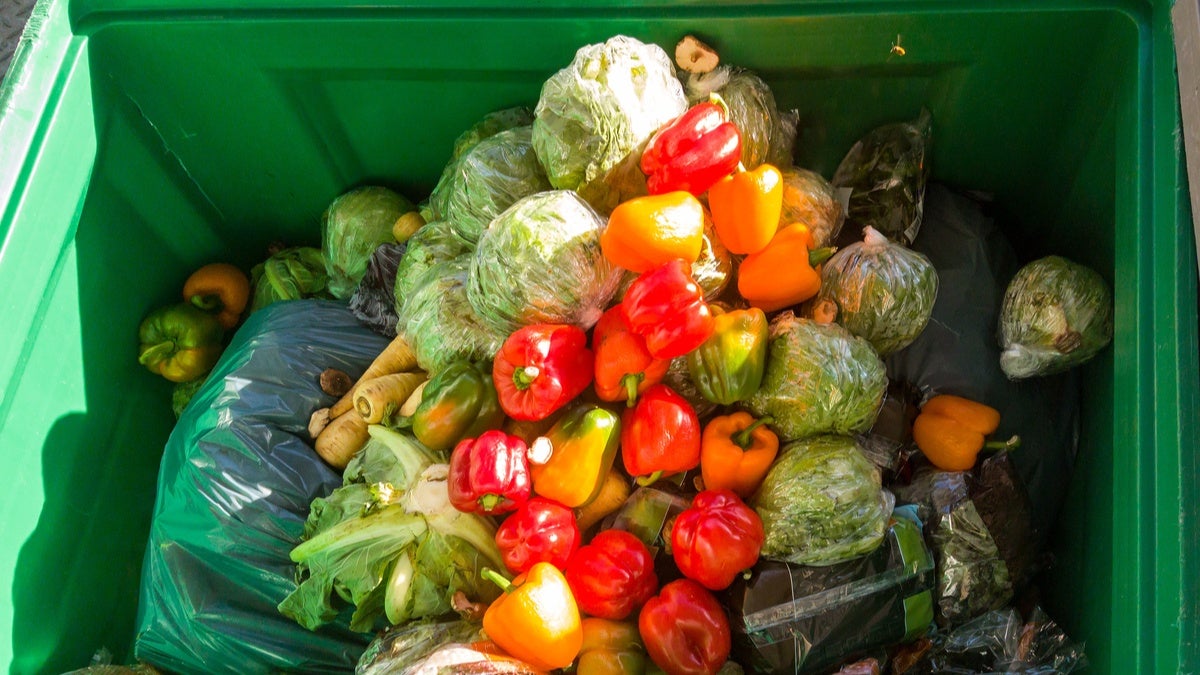
What exactly does Orderly do?
We’re a 13-year-old, pioneering, sustainability-first supply chain technology company based in Derby. We improve digital order and stock management tools that reduce food waste for UK businesses, while increasing their profit. Businesses worldwide use our solutions, with Orderly Score especially popular. It acts as a digital store assistant, using artificial intelligence and data sources, including point-of-sale, labour, inventory and CCTV, to offer real-time, store-level insights for food and beverage operators so they can make more sustainable and profitable decisions.
Getting these insights to the right staff member at the right time empowers a business’s sustainability mission. It helps people understand that little decisions every day can make a massive difference overall. Think about the carbon savings coffee chains with tens of thousands of stores could make if they didn’t buy that extra bottle of milk for every location that has gone off by the end of the day.
How much of an issue is food waste?
Food waste is arguably the dumbest problem globally: why would you buy more food than you need as an enterprise, never mind a consumer? There are already tools to stop, for example, hundreds of sandwiches ending up in the bin at the end of the day at a supermarket. Orderly is taking that further and is perfectly placed to help achieve the United Nations’ Sustainable Development Goal 12.3: to halve food waste by 2030.
The economic fallout from the coronavirus pandemic will plunge an additional half a billion people - 8% of the global population - into poverty. This figure is on top of the 700 million people (10%) already living in extreme poverty without access to the most basic needs, including health, education, water and sanitation.
How wasteful is the UK food and beverage industry?
The UK has been called a global leader in tackling food waste, with total food waste levels falling by 480,000 tonnes between 2015 and 2018, according to WRAP - a reduction of 7% per person. While consumer campaigns have had an impact, much of the change is down to some serious pledges from the government, which has a goal to reduce food waste by 20% by 2025. While UK households still waste 4.5 million tonnes of food every year, large businesses have been tasked with setting a food waste reduction target for their UK operations.
Getting these insights to the right staff member at the right time empowers a business’s sustainability mission
At Orderly, we use various data sources to show how customers’ supply chains are working - for better or worse. A business might think it is doing well because it has halved food waste in two years, but that could still be five times worse than the average.
Are business leaders’ mindsets around food waste changing?
For sure. We started Orderly Score about two years ago; as soon as we engage with leaders, they understand the many benefits of having real-time insights at their fingertips. Connecting companies, supply chains and people is now critical. Our insights, which are gathered from a wide range of customer data sources, reveal what’s really happening.
Connecting supply chains to enable circular economies is increasingly essential and facilitated by Orderly’s solutions. For example, if some milk at the supermarket is about to expire, it can be moved to a restaurant using our platform. Before the pandemic, this was completely unheard of - no one even thought about it. But things have changed.
You moved to the CEO role in January 2020 – what have you learned?
There have been massive changes and shocks in supply chains, which are ongoing. At the start of the pandemic, it made my life as CEO of a service provider very difficult because it was our job to keep the wheels turning. When lots of quick-service retailers went quiet due to the lockdowns worldwide, grocery sales went through the ceiling.
With Morrisons, in only six days we managed to unlock food that could potentially have gone to waste in warehouses and launch food boxes for the NHS, people who were shielding and Morrisons customers. This agility created another route to market - direct to consumers’ doors - and may not have been possible to implement so quickly with a less responsive tech supplier. Having a smart strategic partner with a sustainability-first mindset will enable businesses to rebuild quickly after the pandemic and better manage the planet’s resources.
To find out more about how Orderly can help you tackle supply chain waste, visit orderly.io
Promoted by Orderly

What exactly does Orderly do?
We’re a 13-year-old, pioneering, sustainability-first supply chain technology company based in Derby. We improve digital order and stock management tools that reduce food waste for UK businesses, while increasing their profit. Businesses worldwide use our solutions, with Orderly Score especially popular. It acts as a digital store assistant, using artificial intelligence and data sources, including point-of-sale, labour, inventory and CCTV, to offer real-time, store-level insights for food and beverage operators so they can make more sustainable and profitable decisions.
Getting these insights to the right staff member at the right time empowers a business’s sustainability mission. It helps people understand that little decisions every day can make a massive difference overall. Think about the carbon savings coffee chains with tens of thousands of stores could make if they didn’t buy that extra bottle of milk for every location that has gone off by the end of the day.

